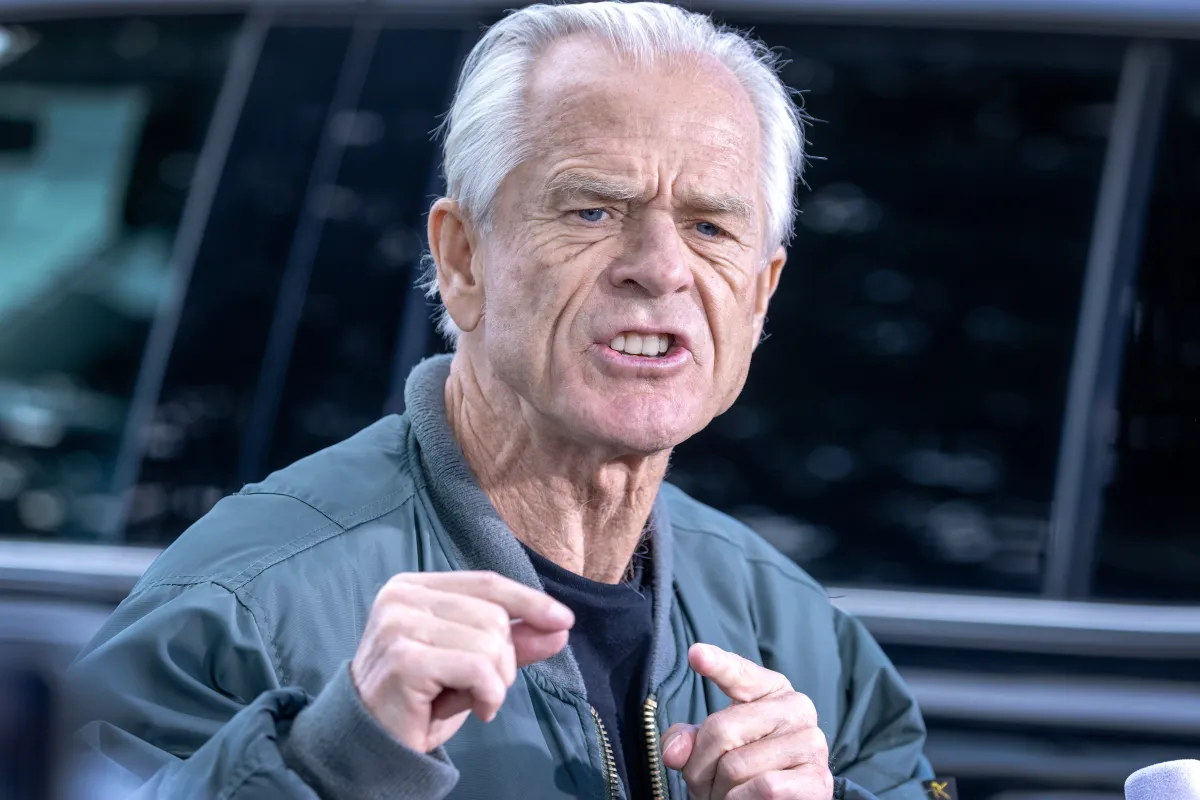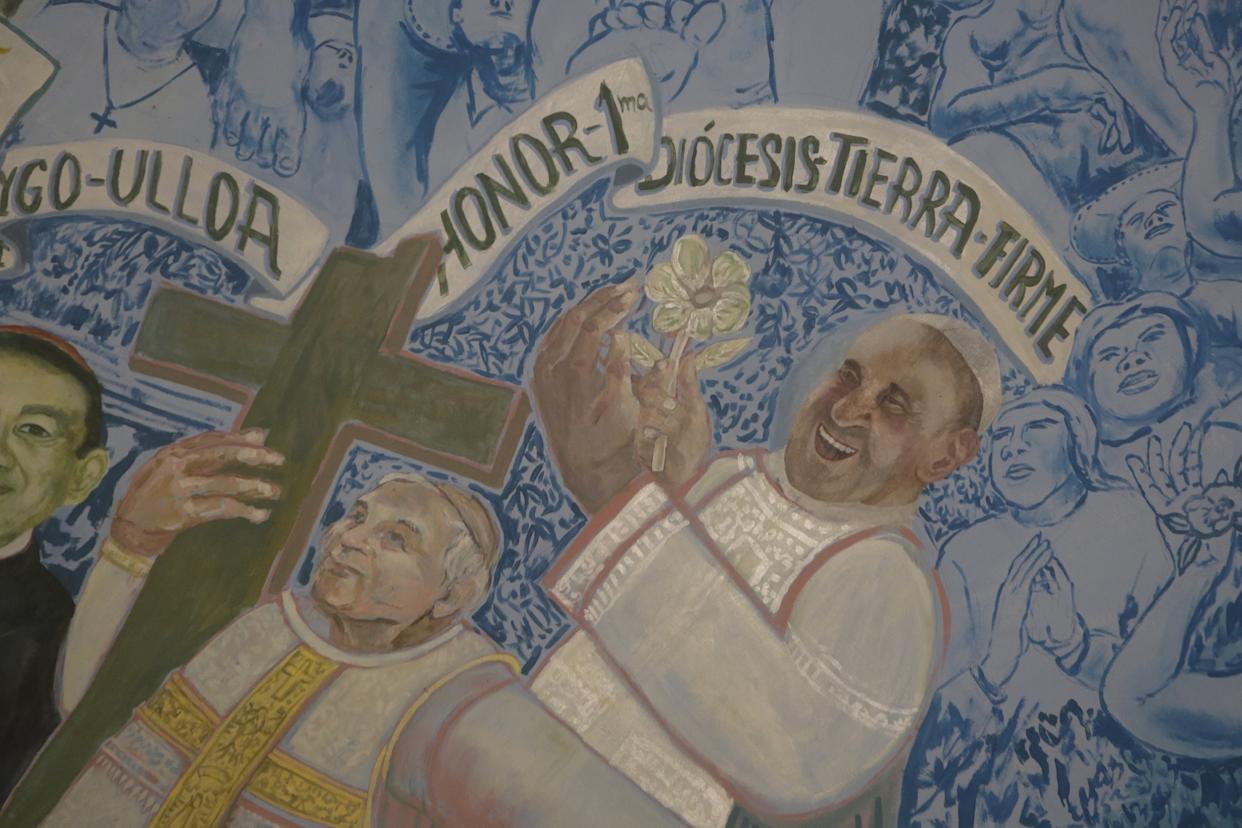International
Former Trump adviser Peter Navarro is released from prison to participate in the Republican convention

Peter Navarro, former adviser to former president and Republican candidate Donald Trump, was released from prison on Wednesday in Miami after a four-month sentence for failing to comply with a summons from Congress related to the investigation of the assault on the Capitol on January 6, 2021 by Trumpistas.
According to the campaign of former President Trump (2017-2021), the former economic adviser of the White House plans to present himself at the Republican National Convention, which takes place from Monday in Milwaukee and ends this Thursday.
The former president, who was already proclaimed this Monday as the official Republican candidate, said last May that he would “absolutely” hire Navarro again in case of returning to the White House.
Navarro completed his sentence in a federal prison in Miami on Wednesday after the conviction he received in 2023 on two counts of contempt for not presenting documents related to the investigation and skipping his statement before the select committee of the House that investigated the assault on the Capitol.
Congressional investigators wanted to collect the testimony of the former White House official about his post-election actions, in which the current president of the United States, Democrat Joe Biden, was the winner.
Navarro, who surrendered to the authorities on March 19, failed in his attempt to evade prison while appealing the sentence, after U.S. Supreme Court judge John Roberts dismissed a request made by his defense.
Throughout the judicial process, Navarro argued that he believed that, based on an invocation of executive privileges by then President Trump, he did not have to comply with the demands of the chamber committee.
Before entering the prison, Navarro pointed out that his sentence was “an unprecedented assault on the constitutional separation of powers.”
During the trial, the Prosecutor’s Office affirmed that Navarro demonstrated “total contempt” for the committee of the House of Representatives that investigated the insurrection and “for the rule of law.”
The former adviser prepared at least three reports related to the 2020 elections in which he cited versions of alleged fraud, and in January 2021 the then President Trump alluded to one of those reports when he summoned his followers to a protest in Washington, which ended in the temporary seizure of the Capitol by the protesters.
For the assault on the Capitol he has also been sentenced to four months in prison for contempt Steve Bannon, Trump’s former head of strategy, however another court ruled that he could be released pending an appeal.
International
DHS Secretary Kristi Noem’s Purse Stolen in D.C. Restaurant Heist

The purse of Kristi Noem, Secretary of the Department of Homeland Security, was stolen on Sunday night at a restaurant in Washington, D.C., Fox News Digital confirmed through several agency sources.
The handbag, taken by a white male wearing a mask, reportedly contained $3,000 in cash along with personal documents, including her passport, keys, driver’s license, and DHS badge, according to an agency spokesperson.
“Her entire family was in town, including her children and grandchildren. She was celebrating her retirement by treating them to dinner, activities, and Easter gifts,” the spokesperson added.
Crime continues to be a significant issue in the U.S. capital, particularly theft. However, violent crime reached its lowest level in 30 years last year, according to the Office of the Attorney General at the time.
International
Pope Francis: The Quiet Architect Behind the U.S.-Cuba Thaw

When then-U.S. President Barack Obama and Cuban President Raúl Castro announced the reestablishment of diplomatic relations in December 2014—after decades of hostility—there was a third figure present in both speeches: Pope Francis.
This thaw in U.S.-Cuba relations—later reversed by Donald Trump—was the result of behind-the-scenes negotiations personally encouraged by Pope Francis, who passed away on Monday at the age of 88, just over a year after becoming head of the Catholic Church.
Upon learning the news of the breakthrough, the pontiff humbly stated, “This was made possible thanks to the ambassadors and to diplomacy,” which he called “a noble, very noble job.”
In 2015, months after the announcement, Raúl Castro visited the Vatican and met with the pope. Over time, Castro developed a fondness for Francis that he never had for his predecessors, Benedict XVI and John Paul II. “If the Pope continues talking like this, sooner or later I’ll start praying again and return to the Catholic Church—and I’m not joking,” said the younger Castro, who, like his brother Fidel (1926–2016), had been educated by Jesuits—the same order to which Pope Francis belonged.
Pope Francis visited Cuba later that year. Just days before his arrival, the Cuban government announced the pardon of 3,522 common prisoners as an act of clemency.
While in Havana, the pope met with Fidel Castro, who gave him a first edition of the book Fidel and Religion by Brazilian friar and liberation theologian Frei Betto.
Criticism from the Opposition
Francis’s diplomatic approach also drew criticism from parts of the Cuban opposition. In a 2022 interview with Univision, the pope revealed he had “a human relationship” with Raúl Castro.
International
Dominican Republic Declares Three Days of Mourning for Pope Francis

Dominican Republic President Luis Abinader has declared three days of national mourning starting Tuesday following the death of Pope Francis, who passed away on Monday at the age of 88 in his residence at the Casa Santa Marta.
In an official decree, Abinader highlighted the pope’s legacy “as a global leader who promoted significant reforms within the Catholic Church and was known for his humility, openness to dialogue, and commitment to peace among nations.”
During the mourning period, the national flag will be flown at half-staff at military facilities and public buildings.
According to a statement from the Office of the Presidency, although Pope Francis never visited the Dominican Republic during his papacy, he maintained a close relationship with the country. He expressed solidarity and empathy during difficult times, including offering prayers for the victims of the recent tragedy at a Santo Domingo nightclub on April 8, which claimed 232 lives and left more than 180 injured.
-

 Central America5 days ago
Central America5 days agoNicaraguan Exiles to Mark 7th Anniversary of 2018 Protests with Global Commemorations
-

 International5 days ago
International5 days agoDominican ‘False Hero’ Arrested for Faking Role in Nightclub Collapse That Killed 231
-

 Central America4 days ago
Central America4 days agoUN complaint filed against Costa Rica over detention of migrant children
-

 International4 days ago
International4 days agoACLU seeks emergency court order to stop venezuelan deportations under Wartime Law
-

 Central America2 days ago
Central America2 days agoSenator Van Hollen Meets with Deported MS-13 Member in El Salvador; Trump and Bukele React
-

 International2 days ago
International2 days agoThousands rally nationwide against Trump’s threat to U.S. democracy
-

 International2 days ago
International2 days agoPope Francis Appears for Easter Blessing, Calls for Peace and Religious Freedom
-

 Central America15 hours ago
Central America15 hours agoCardinal Rodríguez to Attend Funeral of Pope Francis: “He Was Very Dear to Me”
-

 Central America15 hours ago
Central America15 hours agoNicaragua’s Ortega and Murillo Mourn Pope Francis, Acknowledge ‘Difficult’ Relationship
-

 International15 hours ago
International15 hours agoDominican Republic Declares Three Days of Mourning for Pope Francis
-

 International15 hours ago
International15 hours agoDHS Secretary Kristi Noem’s Purse Stolen in D.C. Restaurant Heist
-

 International15 hours ago
International15 hours agoPope Francis: The Quiet Architect Behind the U.S.-Cuba Thaw















